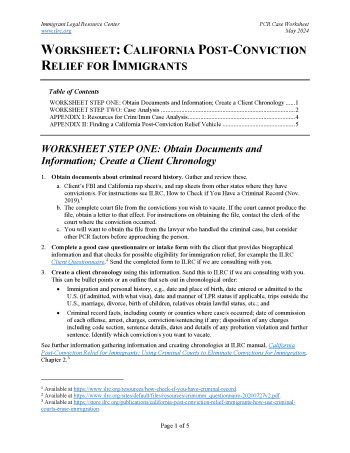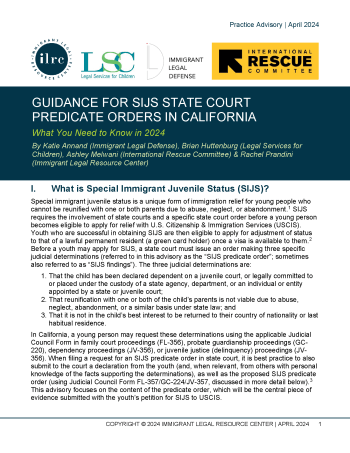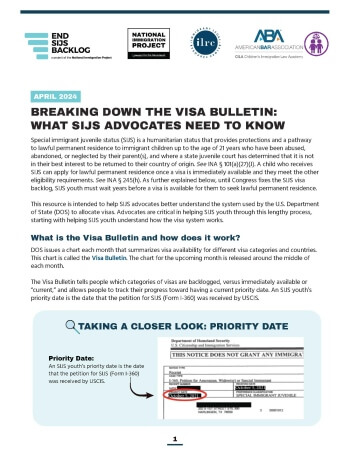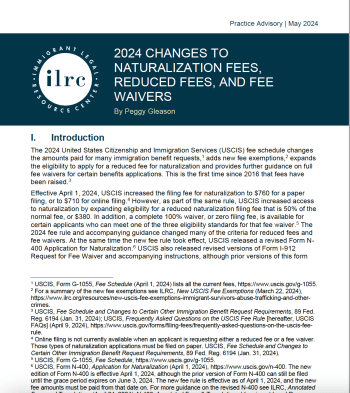
Thousands of noncitizens in California are at risk of removal because they have criminal convictions that were unlawfully imposed. California law provides several ways to eliminate these convictions with post-conviction relief (PCR). The challenge is that there are not enough PCR experts to meet the need, especially for low-income immigrants.
Special Immigrant Juvenile Status (SIJS) provides a pathway to a green card for young people who have been “abandoned, abused, or neglected” by a parent. This Community Explainer unpacks what that means, what the SIJS key benefits are, and how one may become eligible to apply for this path to relief.
This Community Alert is a reminder for recipients of Temporary Protected Status (TPS) from El Salvador, Haiti, Honduras, Nepal, Nicaragua, and Sudan that re-registration deadlines are coming soon. Review to learn about the deadlines for each country.
Read and share our one-pager in English and Spanish to learn about the top 10 things noncitizen protestors should know before they take to the streets to exercise their rights.

This updated guidance, written with our partners Immigrant Legal Defense (ILD), International Rescue Committee (IRC), and Legal Services for Children (LSC), includes recommendations for what information to include in state court predicate orders for special immigrant juvenile status (SIJS) in California. It incorporates guidance from the 2022 SIJS regulations as well as the USCIS Policy Manual, and includes helpful citations to California law. It also includes sample predicate orders from family, probate, dependency, and delinquency courts.

This resource - created in partnership with the End SIJS Backlog Coalition, CILA, and NIPNLG - addresses common questions and myths about the visa bulletin, how to talk to clients about the SIJS backlog, and how both advocates and directly impacted young people can get involved in the Coalition’s work to end the backlog and its harms.
